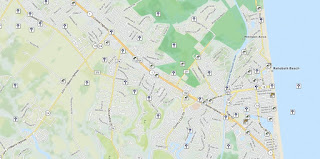Summer fun is never in short supply. Finding unique activities, however, can sometimes be challenging. Looking for exercise? Excitement? Something… different? A lesser known game, Geocaching, might be just what you’re looking for. Geocaching is a contemporary treasure hunt practiced all over the world, combining modern technology with the classic thrill of adventure.
Geocaching was born in May, 2000, with the advent of GPS (Global Positioning System). As enthusiasts discussed the potential for this technology online, Dave Ulmer posted instructions for a new game, "The Great American Stash Hunt", to a GPS forum.
The object was to hide a box filled with trinkets - known as the "stash" - mark its GPS coordinates, and post them online. Seekers would then attempt to locate the stash using only their GPS. The rules were simple:
- Locate the box using the provided GPS coordinates.
- Take an item from the box and replace it with something else.
- Return the stash to its hiding place.
Within days, two seekers located Mr. Ulmer’s stash and reported their findings. The idea quickly exploded as people began hiding their own, and seeking each other's caches - known today as Geocaching! To read more about this history, click here.
Geocaching is an exhilarating activity that has steadily grown in popularity and can be enjoyed by anyone, anytime, anywhere! Caches range from easy and quick to find, to quite difficult, depending on what kind of outing you're looking for. Caches come in countless shapes and sizes. Here are just a FEW examples:
Important things to remember:
- A cache does not always say “official geocache”.
- A container can take any shape; I’ve found them inside a large, Lego-type block before!
- Caches are not always hidden on the ground.
- It’s important to take into consideration a margin of error with GPS coordinates - roughly about 30 feet from the exact marked location.
With over 2 million Geocache locations worldwide, the adventures are endless. Chances are you can find several cache locations near you, no matter where you are. For example, a quick internet search showed me 213 caches in Rehoboth Beach alone, and almost 3000 in the state of Delaware! See below for just a small sample:
In addition, if you’re looking for an extended adventure, there is the Delaware Geocaching Trail with caches located throughout the state. Click here to read more!
Interested in giving Geocaching a try? Here are some tips:
1. Online Resources - There are a variety of websites where you can register for a free account and gain access to cache locations. It is worth noting that upgraded, paid subscriptions are available, but not required. Here are a few options:
- www.geocaching.com (My personal favorite)
These resources have everything on history, rules, and cache info. Additionally, you can always look to the online community and talk to other Geocachers... which is awesome!
2. Navigating - You'll need a GPS. Luckily, most smart phones have them built in, or, you can buy one. Since the only necessities are this and an internet connection, Geocaching is a very inexpensive activity!
3. Helpful Apps - I'm currently using Geocaching Intro by Groundspeak Inc. on my iPhone. This free app shows you various caches in the nearby area. It includes the difficulty, cache size, coordinates, real-time map, the option to read hints from other Geocachers, and allows you to check off the cache once you find it. It also links to geocaching.com, as they're both run by Groundspeak. There are many geocaching and GPS apps to choose from, so just do a little research and decide what works best for you. See below for an example of Geocaching Intro app:
4. What to Bring/Wear - While this is not necessary, I prefer to take a backpack when I go, since I usually seek more than one cache at a time. Here are a few helpful items I like to bring:
- Water
- Snacks
- Bandages and Neosporin (just in case)
- Flashlight
- Sweater or jacket
- Trinkets for trading
- A Pen (some caches do not contain one for logging your find)
Sometimes the cache is close enough so you can leave the bag in the car, others, or spots with multiple caches, require more hiking.
Lastly, I prefer to wear long pants, as some caches could be in wooded areas with a lot of brush to walk through.
5. Trinkets - They don't have to be fancy or expensive, just tokens. Though smaller caches may just have a log book, you’ll want to have something to trade when you find a trinket-filled cache.
6. Log Book - Most caches will have one for you to write your name/username, and date. Some have additional space where you can add a little note too! I like to thank the owner for the cache and let them know I had fun looking for it.
No matter what site you choose, Geocahing is a great opportunity to explore new places, get some fresh air and exercise, and have fun in the process.







No comments:
Post a Comment